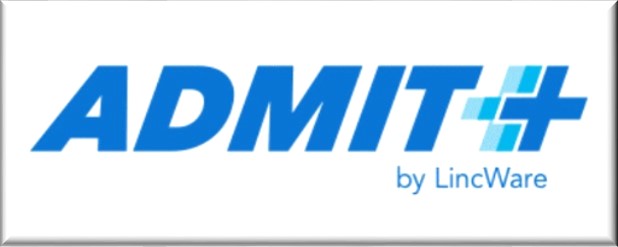Can you imagine if, to order a book from Amazon, you had to download an order form, write a check, snail mail your order, and sit and wait for the book to arrive?
By Susan Saldibar
Can you imagine if, to order a book from Amazon, you had to download an order form, write a check, snail mail your order, and sit and wait for the book to arrive? Of course, that’s ridiculous. That’s not how Amazon works. They bet the bank that customers want to order a book online, pay with information that’s already on file, and receive their books the next day. And they were right.
But we all know about Blockbuster. As consumers, we didn’t want to put up with the inconvenience of driving to the nearest location during normal business hours only to find out the movie our kids wanted to watch is out of stock. Netflix had a better idea and took the market away. Just like that.
I spoke recently with Darren Mathis, CEO and Co-Founder of LincWare (a Senior Housing Forum partner) and developer of Admit+, the digital admissions platform that’s been making a lot of noise lately in places like McKnight’s by winning an Excellence in Technology Gold award.
The Blockbuster and Amazon analogies are ones that Darren uses frequently. Mainly because they make an important point about how behind the times this industry is when it comes to admitting new residents. Today’s 80+-year-old residents may put up with dozens of paper forms and re-entering personal information over and over again. But their adult children won’t. And those are tomorrow’s residents.
Darren and I talked about the real problem with traditional admissions processes. “This is about much more than paper,” Darren is quick to say. “It’s about access and efficiency of actions. It’s about removing silos and centralizing records and resident input. Operators need to realize that,” he added.
So what’s in store for those communities remaining in the Blockbuster “camp”? Here are some potential problems Darren says operators may run in to by continuing to use old admissions processes.
-
Waste of time and valuable resources. Moving through hundreds of pages takes time. In many instances, sales reps will start working on it well before the prospective resident even has a nurse’s assessment. If for some reason, the resident is not considered a good fit, there is a lot of time lost. The bottom line is when you have sales chasing down paperwork instead of engaging with prospective residents, nobody wins.
-
Increased risk. How quickly are your documents updated when you make changes with new versions? Changes to pricing, regulations, and processes occur, documents need to be updated. Accurate versioning is another area often compromised by lack of coordination. And this is critical in senior living. Using outdated forms on the front end can cause major issues on the back end. How about missing a document or signature? Auditors will catch that every time.
-
Negative impression of the community. The last thing a community needs is to have the first real piece of business conducted between themselves and a new resident be a bad experience. “Customers tell me, ‘We do a great job of selling the value of our communities, engaging our prospective residents and their families,’” says Darren. “’Then we drop a giant stack of paper in their laps. What does that say about our organization?’”
-
Loss of business. Even Docu-Sign documents are not centralized in a way that can keep track of each form. And paper moves very quickly out of your control. How many times have you heard “I gave her the paperwork and I haven’t heard from her since.” Darren reminded me that so much can happen between handing a “new resident” a stack of admission forms and actual move-in.
-
Frustrating families. Are you taking a page out of the Blockbuster playbook by asking residents and families to adjust to your outdated processes? Are you making them go back and forth between your community and their homes to complete a ton of paperwork? That may be easier for you, but what about them?
-
Higher turnover. Finally, people don’t like long, tedious processes. In a digital age, it is important that companies keep up with technology. The new generation of employees knows tech and automated processes are expected. Paper is a turnoff.
And, Darren reminds us, there is the question of increasing competition. How do you plan to compete in an industry that is increasingly moving towards automation? New communities are already using automation from start to finish, and they are seeing the results, not only in greater efficiency but also in gaining more satisfied residents. That means better reviews and referrals.
Darren tells me he will continue to work to educate community leaders as to the importance of updating technology to better serve the residents and staff. “It’s no longer a question of ‘if’ we will move to full automation, it’s a matter of ‘when’,” says Darren. And it has even broader implications. “It’s about using your team for more than organizing and retrieving files. And it’s about where we are going as an industry.”
For more information about LincWare’s Admit+ you can visit their website. You can also watch a few videos or book a discovery call to see if Admit+ is right for your organization.
Download a PDF copy of this article by clicking on the button below:










